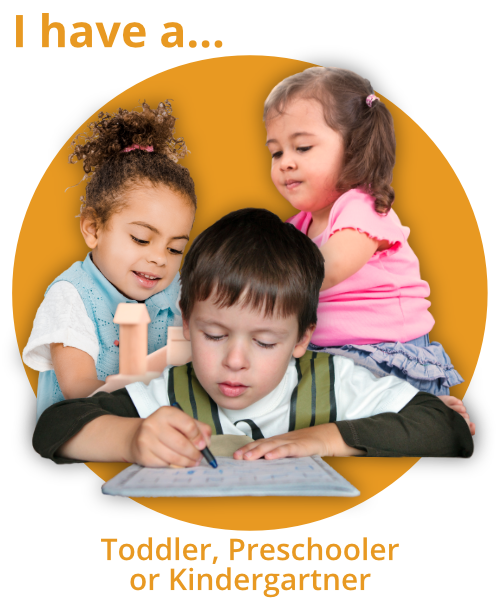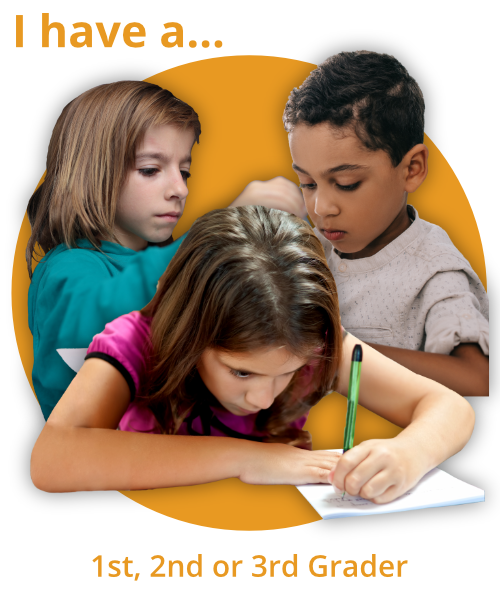Montessori Is NOT Just For Rich People!
Or listen here: APPLE PODCASTS | SPOTIFY | GOOGLE PLAY | STITCHER
Did you know -- Montessori is for REGULAR people! NOT just rich people!
Oh, yes...it's true that many affluent parents have fallen in love with the Montessori method. It's so "haute" right now that sometimes it makes me want to throw up. These are strong words because my feelings are strong.
Because friends--Maria did not create a fancy pants method of education. She studied CHILDREN. And her very first school, the Casa dei Bambini, was created especially for children whose parents were struggling financially.
So please do us all a favor and don't believe the hype about the expensive stuff! In this episode, I share with you my thoughts on making no-cost Montessori magic at home and celebrate the Montessori public schools I've seen in action.
No Cost IS Very Possible
I like to say I grew up with Montessori. It’s kind of in my blood! I have lived and breathed it my whole life. And I am so glad this kind of technology exists; it allows me to chat with you each week about ways you can bring Montessori home.
This week’s topic is all about how Montessori is for EVERYONE. It is something that comes up frequently in the group I created (Montessori 101): people feeling desperate ask “WHY does Montessori have to cost so much!?!?” and then go into the price of materials or toys that they have seen people talk about on the internet, or discuss the cost of tuition for private Montessori school.
And I’ll tell you--yes, those things ARE expensive. But they are also NOT the only way to give your child a Montessori childhood. Not by a long shot! Montessori is (and should be) available for every child--not just those whose families can purchase it.
This podcast comes with a free, downloadable checklist: No Cost Ways to Make Your Home More Child-Centered. A whole list of ways to bring Montessori to your home using things you already have around the house.
Scrappy Montessori is valid Montessori--I promise! All you have to do, if you’d like to own this list, is click on the banner below.
And now, here’s an exploration into why Montessori is so very accessible to everyone:
Montessori from birth
A Montessori babyhood does not need to be expensive. YOU are the most important part of your baby’s environment and life. Of course there will be a time when they start to engage more with their environment--but mostly, they want to be with you. Carry the baby with you, talk to them, and let them experience the world with you. Maria Montessori observed in her travels so many cultures which wore their babies and took them with them wherever they went.
I think the best environment you can share with your baby is the outdoors! Take a walk, have a picnic, feel the grass, read some books--this can even be whatever book you are reading, it doesn’t have to be a special baby book.
Giving your baby time to explore with you, and letting them see the world through your eyes, is a gift and a great experience. You can give your child a few manipulatives, but you don’t need a lot, and they don’t need to be fancy or expensive..
Montessori at home
Once your child is toddling, they are taking it upon themselves to explore the environment around them fully--taking all the books off the shelf and pushing them around the room; taking all the socks and shoving them in a small hole that you forgot even exists. These children don’t need stuff--they just need the opportunity to explore the things that exist already in their environment. Yes, we need to prepare their environment a little, but it doesn’t need to be about toys or spending lots of money. Let them have a step stool so they can wash their hands. Put their dishes and utensils in a low cabinet so they can serve themselves. There are so many no cost ways to prepare your home!
Montessori public schools
Yes, there really are Montessori public schools! I wish I could’ve taught in one, though I did get to do some substitute teaching in one. Here’s what I know: they are using Montessori materials to teach children joy within the construct of the public school regulations.
No, it won’t be perfect, purist Montessori...but I don’t know if ANYTHING is perfect, purist Montessori.
Maria Montessori was a person, who we can learn from immensely...we can learn from people who studied and learned from her...but we can’t know exactly what she would have done in any given situation because she is no longer living.
No school can be perfect! Everyone is just doing the best they can to implement the pedagogy to the best of their ability in the community and culture they are in NOW. They take what they can from Maria’s study and apply it to the children in their care. You might even see some of Maria’s concepts undercover in traditional classrooms right now! Her protege Piaget brought many of the same concepts that Maria built into the Montessori pedagogy to the table and incorporated them into the mainstream education system.
Montessori support at home from traditional schools
What if your child ends up in a traditional classroom that relies on direct teaching methods and strict, top down teaching? Does this mean that Montessori is inaccessible to them?
Absolutely not, I say!
You can still give your child a Montessori education by supporting what they are doing in school at home with your own DIY materials. For example: in place of golden beads, you could use unpopped corn kernels! Beautiful and shiny, the child could easily group them into batches of 10. Take those ten and exchange them for a popsicle stick!
Your materials at home that you are making from scratch are STILL worthy, in all their imperfection. Who CARES if they are the same as what you’d buy from a company? They are still tools that aid your child’s development. You can still use them to help with your child’s homework.
Did you know?
Maria Montessori set out to serve underprivileged children! Not only that, she actually sort of judged affluent families for the ways in which their affluence affected the child’s ability to interact with materials and the environment in a deep and meaningful way. She was a minimalist! She wanted to introduce children to lovely things, but not an excessive number of things.
I don’t know that her worries about affluent children are valid...I think all children can enjoy playing in the dirt. Still, it’s worth considering whether or not there is deeper benefit to children having less stuff.
If you want to read more about the beginning of Maria’s work, you should check out “The Discovery of the Child,” which I read from extensively in this episode. Your initial reading of it *might* be that she comes off as judgemental (and she does!)...but the heart of her work is serving the children who need it the most. It is not the job of the Montessorian to save the world. It is the job of the Montessorian to protect the children, so that the children can save the world.
In Support of Parents
I think Maria also highly underestimated the value and role of the parent in the education of children. She observed the families of San Lorenzo, in which many parents were struggling, and had to work many hours to provide for their families, and many children were left alone a lot of the time to fend for themselves.
For those children, the best gift she could possibly offer was the Casa dei Bambini-- the Children’s House. But for many families, a children’s house is not necessary--they already have a loving and wonderful environment at home. Parents are capable of learning how to provide for their children the Montessori way from birth--even if they don’t have lots of money. Montessori is not something that can be contained within a school system.
Families can follow the same creeds--without the formality, or the need to be sanctioned or certified by some governing board.
Guides: the parents of your students are a major asset, and a source we should be tapping into to support and help the development of our children. If we are to truly follow the child, we need to be doing it all the time--not just within school hours. Not only are parents willing to learn, they are capable of doing it. I know and remember how hard it is--just be sure you are giving those parents credit for their power in their child’s life.
Parents: Maria Montessori placed a lot in the belief that children had the power to educate themselves. You can too! It won’t be as easy as it is for children in the period of the Absorbent Mind, but you can do it. You are 100% capable!
Gratitude
Today, I am grateful for hard work, perseverance, and the ability to march hand and hand through things that are challenging, uncomfortable, and unpleasant.


